Antelope Island Biologist Presented With Utah Wildlife Federation Lifetime Conservation Achievement Award
From: The Utah Wildlife Federation
March 20, 2024
ECCLES WILDLIFE EDUCATION CENTER, FARMINGTON, Utah —The Utah Wildlife Federation has named Steve Bates the recipient of the Lifetime Conservation Achievement Award.
Steve Bates grew up helping his father count elk, observing dancing sage grouse in mating rituals, and even riding in low-flying planes and helicopters to record bighorn sheep populations.
Those adventures with his father, Jim, and his brother, Bill, created a lifetime passion for wildlife that, not surprisingly, led to Steve’s own storied career. During a Utah Wildlife Summit on Saturday, the Utah Wildlife Federation presented Bates with the 2024 Utah Wildlife Federation Conservation Lifetime Achievement Award.
“State policies were a little looser back then. Bill and I got to spend a great deal of time with my dad. I never considered another occupational path,” Bates said of his father, who managed the bison herd on the Henry Mountains, among other duties, for the Utah Division of Wildlife Resources. “My dad loved it, and as a result, we loved it. We were fortunate to grow up in an era when going to work with him was possible.”
Bates started his career in 1981 as a technician with the Utah Division of Wildlife Resources. After attending the College of Eastern Utah, he received a bachelor’s degree in Fisheries and Wildlife Management at Utah State University. He then received his master’s in wildlife and range resources at Brigham Young University. Bates returned to BYU in 2021 and capped his education with a Ph.D. in wildlife and wildlands conservation.
After working in various capacities for wildlife agencies in Florida and New Mexico, Bates returned to his home state in 1999 and became the wildlife manager at Antelope Island State Park. Managing a wild bison herd on an island at one of the most popular Utah State Parks, which averages more than a million visitors each year, is perhaps one of the most difficult—and certainly one of the most unique—jobs in the country.
“Steve’s accomplishments and work at Antelope Island extend nearly 25 years. He took a rag-tag herd of bison, with low and sporadic birth rates, to one of the nation’s most productive and healthy public herds,” said Antelope Island State Park Manager Wendy Wilson. “He is absolutely deserving of this recognition. Steve is also a team player in every sense of the word. He steps up if we have staffing shortages, even learning how to run the cash register in the gift store. He conducts public programs to help our visitors gain an understanding of parks and wildlife resources. Steve works to create watchable wildlife opportunities for the public who love to come and see not only bison and deer, but pronghorn, coyotes, rabbits, and porcupines.”
Surveys show that more than 90% of Antelope Island State Park visitors come to view the park’s wildlife. In addition to being a main draw, the island’s bison also contribute directly to state park revenues by generating roughly $1 million each year from the annual bison auction and a conservation hunting tag.
“Throw into the equation the dollars from visitors across the world coming to visit the island as one of their destinations, and now you are talking about local economic impact through tourist spending,” Bates said. “To me, it is a no-brainer. I would like to see the island retained as a place where visitors can encounter wildlife far into the future.”
Bates has worked creatively to deal with the unique challenges of managing wildlife on the island. Here are some examples.
- Annual Bison Roundup – When he arrived in 1999, three helicopters herded the bison for annual disease testing and auction selection. He converted the expensive helicopter roundup into a horseback event, where members of the public pay to move the bison to holding pens, creating one of the most unique wildlife experiences in the world.
- Range management – Wildfires can be a good tool for managing ranges, but due to airshed issues and visitor safety, Bates prefers mowing.
- Drought – Keeping wildlife on the island isn’t too much of a concern when the surrounding water levels of the Great Salt Lake and Farming Bay are normal, but when the lakebed is exposed, the animals will roam. To address this concern, a fence was constructed to keep bighorn sheep from reaching the mainland where they could encounter domestic animals and bring disease back with them to the island. Keeping bison from wandering has been a beneficial side effect.
- Water resources—Freshwater resources are precious on the island. During drought years, all species on the island are impacted. Bates built a 100,000-gallon water storage system to deal with the worst drought years.
“Steve has worked creatively to help the people of Utah, and those from around the world, enjoy the varied wildlife at Antelope Island State Park. He managed to keep the animals healthy in the most challenging of situations,” said Brett Prettyman, chair of the Utah Wildlife Federation Board. “It is an honor to recognize his efforts with this award. Steve is the first to say other people in his family deserve this recognition, and maybe one day there will be as he, like his father, has passed his love of the outdoors to his children.”
Bates accepted the award with the following statement, “Since I was made aware of this award, it gave me time to reflect on my career and my life. I got thinking about my dad and all that time I spent with him. It was a great childhood—a great life, and I learned a lot from him.
There are so many people who have contributed to my success. I truly believe it’s upon the shoulders or backs of others that progress is made. I would be remiss if didn’t mention Mitch Larsen, who really pushed for this, I hear. Also, Courtland Nelson. He had a vision that put me in this spot. And Jay Christianson, who set it up so I could make a career out here on the island. I appreciate it.
Finally, my wife. She kept me on that island. She helped me realize what a blessing it was to my family and that I could spend time with my family. And that has been huge for us.
I really appreciate this. I’m humbled by it—this award, this honor. Thank you very much.”
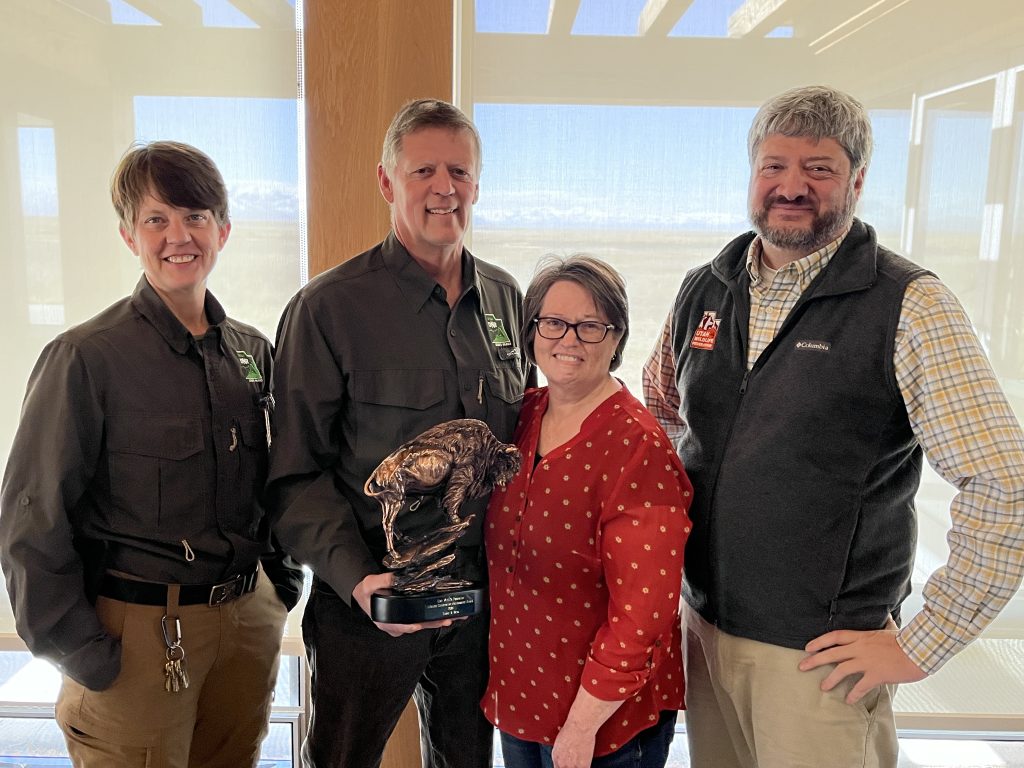
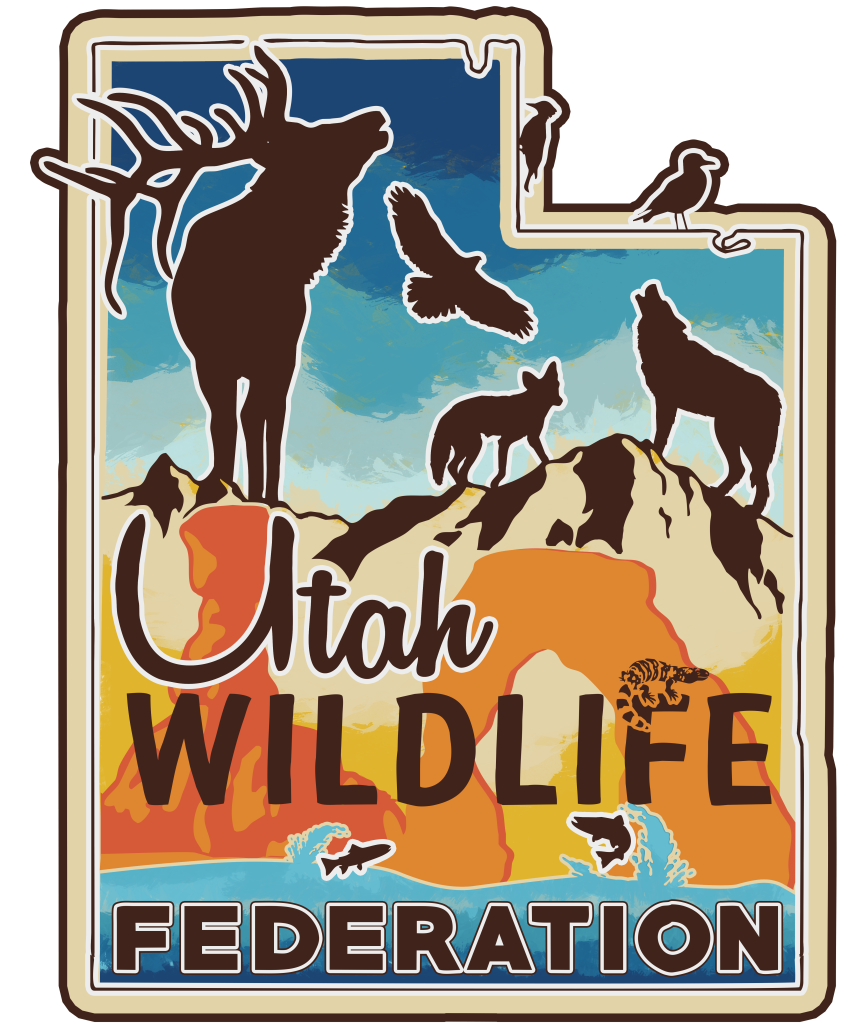
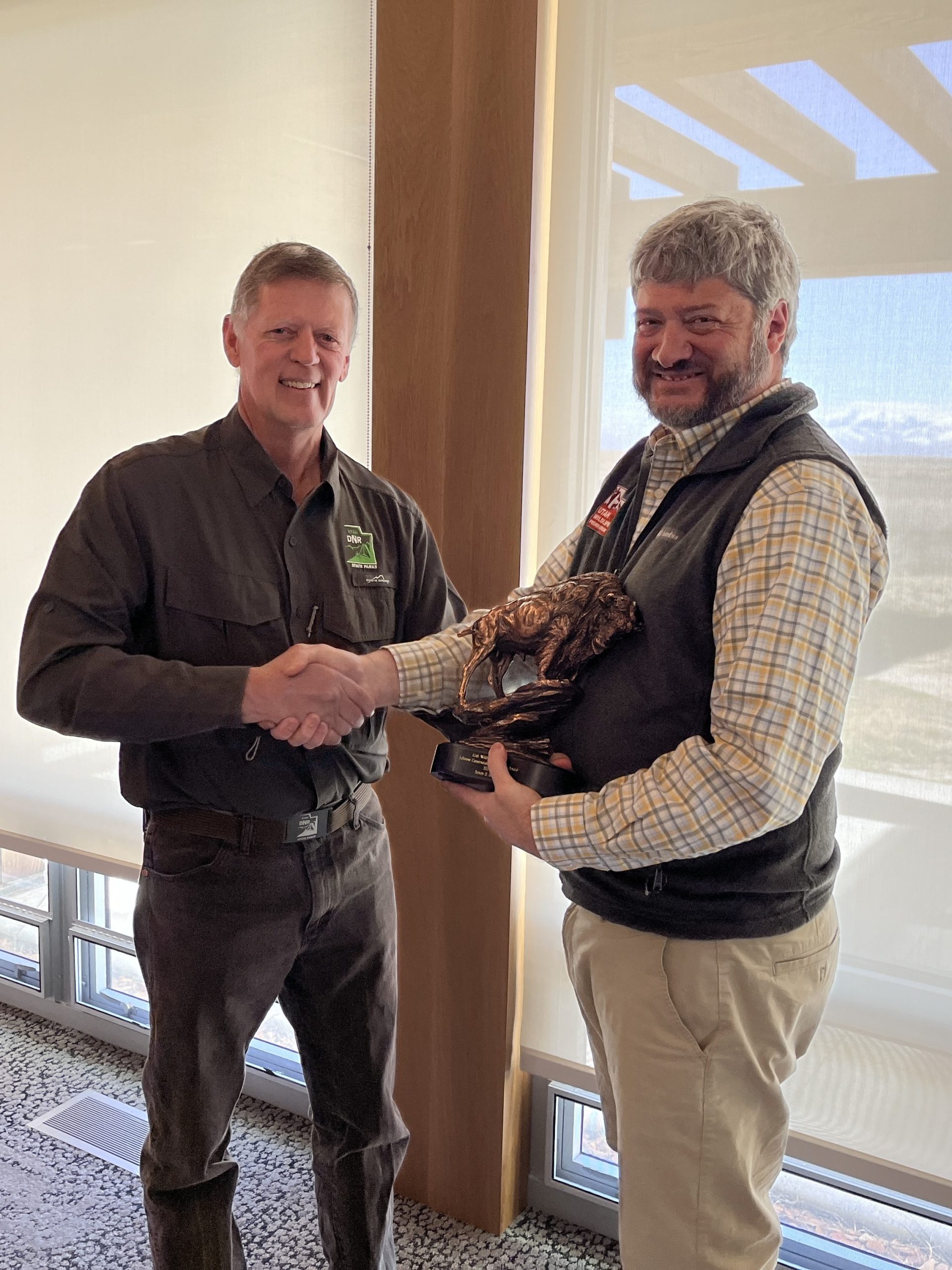
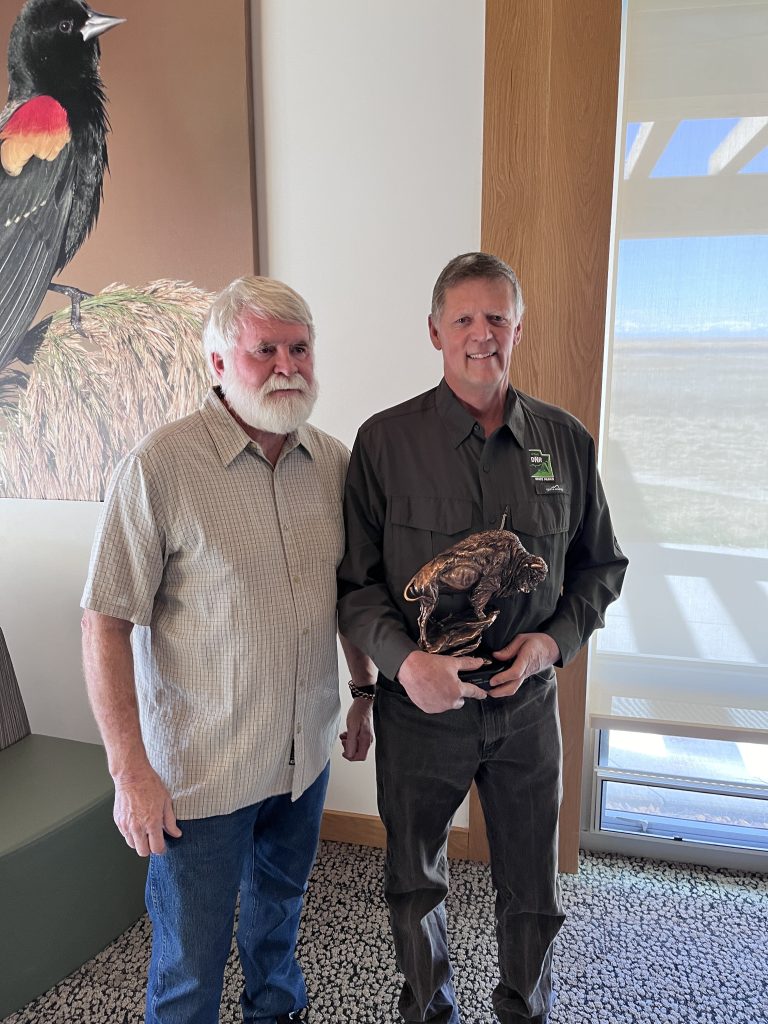
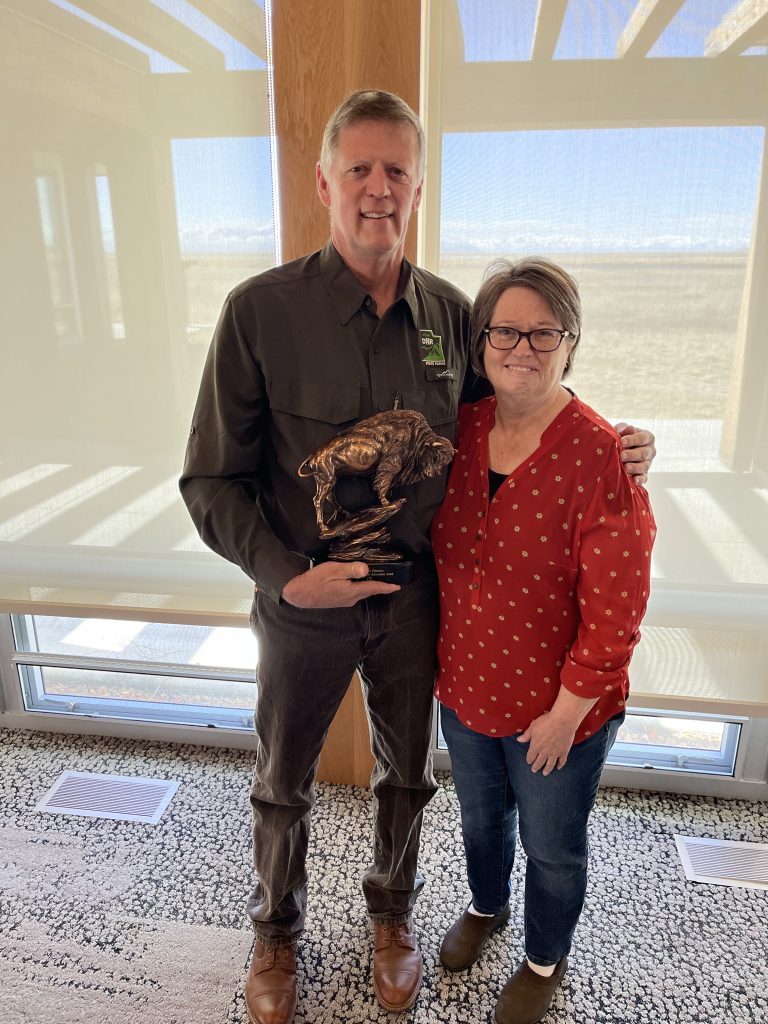
If you found this blog entry interesting, please consider sharing it through your social network.